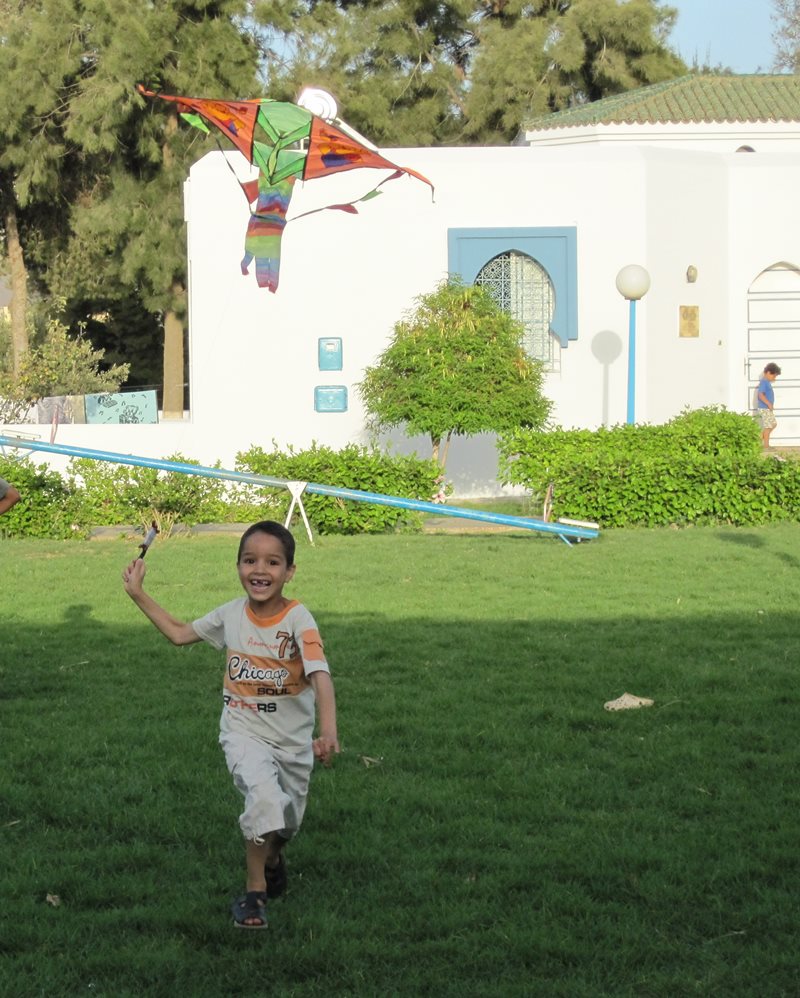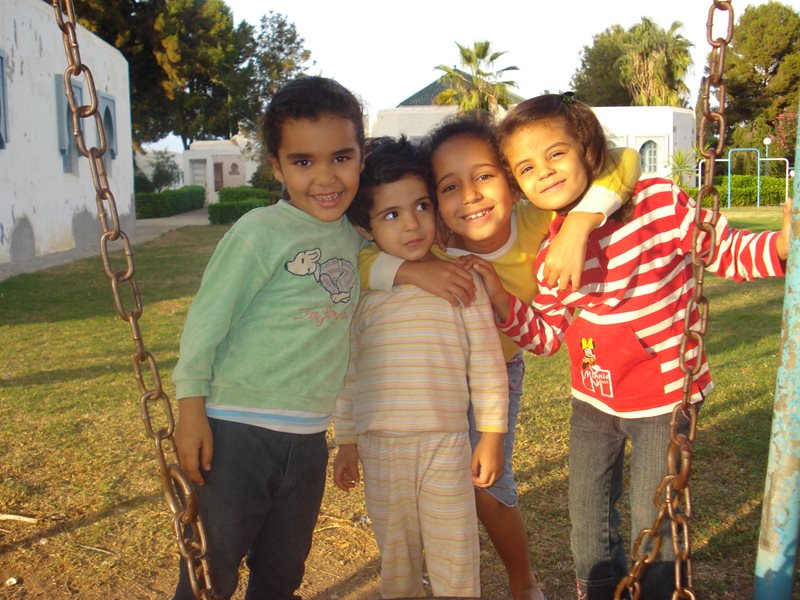The rural population, especially the women and children, need support and education

The SOS Children’s Village Imzouren is located in northern Morocco in the province of Al Hoceima, near the city of the same name. The province has a population of approximately 400,000. In 2004, an earthquake measuring 6.5 on the Richter scale struck Al Hoceima, killing 600 people and causing damage in the surrounding area. SOS Children’s Villages provided emergency relief at the time.
This northern region of Morocco has historically been one of its poorest, with up to 67 per cent of the population deprived of basic needs such as adequate housing. There is also a huge gap between the rural and the urban population: 40 per cent of the rural population have no access to improved drinking water, and 48 per cent have no access to sanitation facilities.
Gender inequality, too, remains very pronounced. For example, 56 per cent of the female population is illiterate, as compared to around 31 per cent of males. Some estimates for illiteracy amongst rural women are as high as 90 per cent.
Children need a safe and nurturing environment
Morocco is also one of the world’s largest producers of cannabis, especially in the north, as well as a major drug smuggling route into Europe. Although this trend has been on the decline in recent years thanks to Morocco’s counter-narcotics efforts, around 760,000 Moroccans living in the northern provinces continue to be involved in cannabis cultivation. Though illegal, many farmers continue to engage in this activity because their earnings are up to 18 times higher than with alternative crops.
Of course this reliance on an illegal crop means a very precarious lifestyle for these farmers and their families; violence, corruption and the fear of being arrested are constant threats in day to day life. In 2008 alone, 28,896 individuals were arrested for drug related offenses. For the families involved, this can mean a sudden loss of income and descent into poverty.
For children from such families, life is precarious and marked by crime from an early age. Their chances of completing an education, building a life and becoming successful adults are seriously diminished due to the environment they grow up in.
What we do in Imzouren

SOS Children’s Villages began its work in Imzouren in 1988.
Care in families: Children from the region who are no longer able to live with their parents can find a loving home in one of three SOS families in Imzouren. Children live here with their brothers and sisters, affectionately cared for by their SOS mother. In some of our SOS families, two SOS mothers now care for the children in shifts (day and night); they overlap during the busy hours of getting children ready in the morning and after school.
Some families are foster families who are supported by SOS Children’s Villages. The foster families have been selected and trained by SOS Children's Villages to ensure that the children are cared for to the highest standards set by SOS Children's Villages. In order to do this, we provide continuous social and emotional support. The foster families are fully integrated into the local communities, living in different neighbourhoods.
Every child has a "Child Development Plan" which is prepared in consultation with the SOS mother. The children attend the local kindergarten and schools alongside children from the neighbourhood: this way they make friends and become part of the community.
Support for young adults: When young people from the children’s village feel ready to move out of their SOS home in order to pursue further education or vocational training, the SOS Youth Programme makes shared accommodation available to them in Al Hoceima, Fès, Salé, or Imzouren itself. Supported by qualified counsellors, the young people live together and learn to take responsibility, plan their future and prepare for independent adult life.